How Angela Rayner went to battle over ‘that nonce’ Prince Andrew
A definitive account of Starmer’s Labour reveals how forcefully his deputy dealt with royal issues after Queen Elizabeth died, in her bid to block the Prince from official duties.
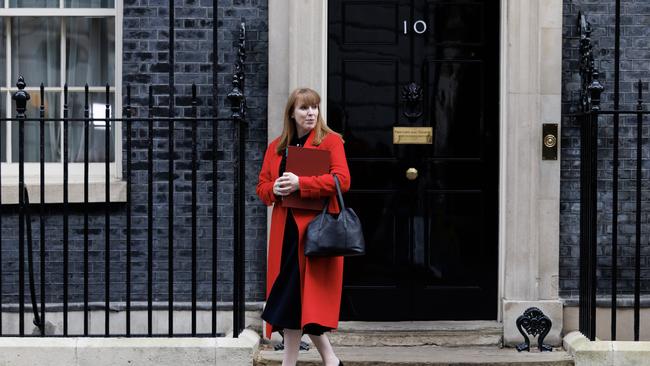
Angela Rayner’s overtures to royalty have generally been rather more colourful than Sir Keir Starmer’s, who has always sought to project a statesmanlike, small-c conservative image.
In 2022 the Labour leader sought to impress the future King with painstakingly planned visits to the Prince’s Trust. Rayner introduced herself to the establishment on her own terms.
After attending an International Women’s Day reception at Clarence House in 2022, a jokingly outraged Rayner told friends that Camilla, then Duchess of Cornwall, had said to her: “Oh, you’re Angela Rayner. You look much younger in person than you do on TV.”
In the days after Queen Elizabeth’s death in September that year, Rayner’s public bearing remained appropriately inscrutable. Behind closed doors, however, she spoke hard truths to the Palace.
All but one aspect of the royal succession had been settled immediately: who would now deputise for the King, giving assent to legislation and representing him officially at state functions, if he were abroad or incapacitated?
The Regency Acts of 1937 and 1953 decreed that the sovereign’s spouse and the next four adult royals in line to the throne would serve as counsellors of state: Camilla, now Queen, Prince William, Prince Harry, Prince Andrew and Princess Beatrice.
The press made much of the inclusion of Harry, brooding in Californian exile. But Rayner, who was the opposition’s Commons spokeswoman on questions relating to the constitution, was more exercised by Andrew.
His desire to play an active role in public life was undimmed by allegations - which he has always denied - that he sexually abused a 17-year-old, his payment of a $24 million settlement to his accuser or the ongoing taint of his long association with Jeffrey Epstein, one of the world’s most notorious pedophiles.
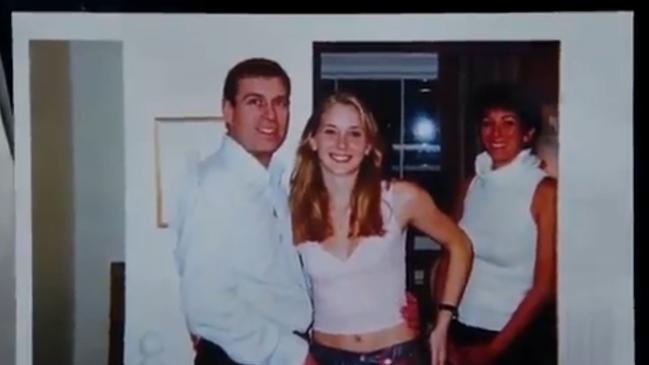
Rayner thought that an outrage. “She was very actively reaching out to the Palace, the upper echelons of the civil service,” an adviser recalled, “and said she thought this was a huge problem, and that the government needed to address this, and that she would offer cross-party support to make sure it happened. That’s - to be stereotypical - her working-class view. She’s not anti-monarchist, but she doesn’t like a paedo.”
In those discussions, she offered the empathy of a mother who knew what it meant to raise a complicated family. Her message, according to her adviser, was: “I know how difficult it is to be in a big, dysfunctional family where you’ve got the black sheep, they’re really damaging to the rest of you but they’re still in your family.” She nonetheless advocated excluding Andrew from royal duties entirely.
That nuclear option proved too much for the Palace and Downing Street to take. Together with the cabinet secretary, the King’s private secretary Clive Alderton alighted on a diplomatic fix: the list would be expanded to include Princess Anne and Prince Edward, so that neither Harry nor Andrew would ever be required to act on the King’s behalf.
Doing so still required new legislation, setting in train an intricate waltz between royalty, government and parliament. Rayner would be required to deliver a statement on the new settlement on behalf of the opposition. Extending the list to add new counsellors of state, however strongly she agreed with the intended effect, would require her implicit endorsement of the existing cohort.
That proved too much. With negotiations ongoing she walked indignantly into her office and told her team: “I’m not going to vote to keep that nonce on ... I can’t go back to my constituency and say, yeah, I support that.”
Labour’s approach towards Rayner did little to soothe her in those days. Once the King had formally acceded to the throne at St James’s Palace, he returned to Buckingham Palace. MPs returned to Westminster, where Starmer and a select group of party grandees retook their parliamentary oaths to a new sovereign.
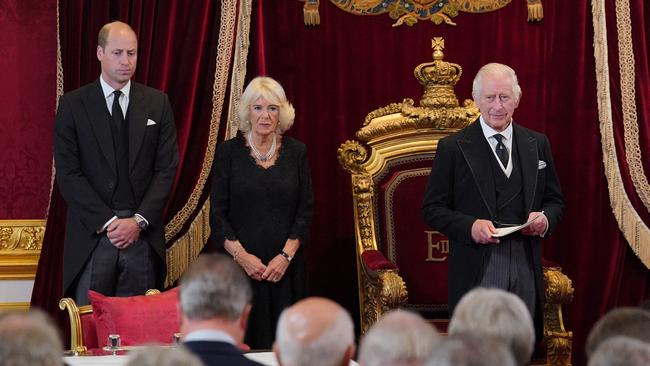
They were: Harriet Harman, mother of the House, then Starmer, followed by Thangam Debbonaire, the shadow leader of the Commons; Sir Alan Campbell, the chief whip; Rosie Winterton, Labour’s deputy speaker; and the shadow cabinet ministers John Healey, David Lammy, Yvette Cooper and Pat McFadden.
Absent from the list, prepared by Campbell, was Rayner. She was furious to learn of her exclusion, and told colleagues: ‘I must have been missed.’ Therese Coffey, Truss’s deputy, was there to swear her oath. Yet Labour’s order of precedence was not a matter of constitutional rules. Rayner’s exclusion was intentional.
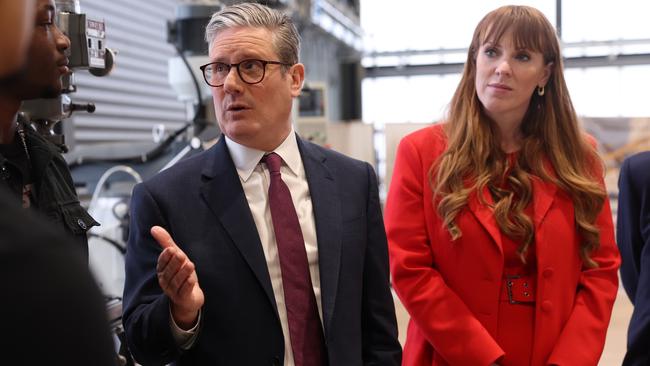
Still sensitive to real and perceived slights to her authority some 16 months on from Hartlepool, she sought clarity. None was forthcoming. “I think you should hang around, go into the chamber and see what happens,” advised one aide. “Oh no,” Rayner said, storming back to her office to retrieve her belongings. “I’m not staying.”
On Andrew, she was equally forthright.
After the deep state learnt of her disquiet, Rayner was summoned for a Zoom meeting with Simon Case, the cabinet secretary and former courtier to Prince William. She made her point with no less force but emerged from the meeting chastened. “After that conversation, she went quiet,” an adviser said. “She never, ever spoke about the royals like that again.”
In the end, she reconciled herself to an elaborate palace fix: although Andrew and Harry remained as counsellors of state, Lord True, the minister responsible, reassured parliament that the royal household had no wish to see them serve.
The force of her personality had very nearly dislodged the leader of the opposition over the preceding year. This time it could not quite sway the pillars of the British establishment.
The Times


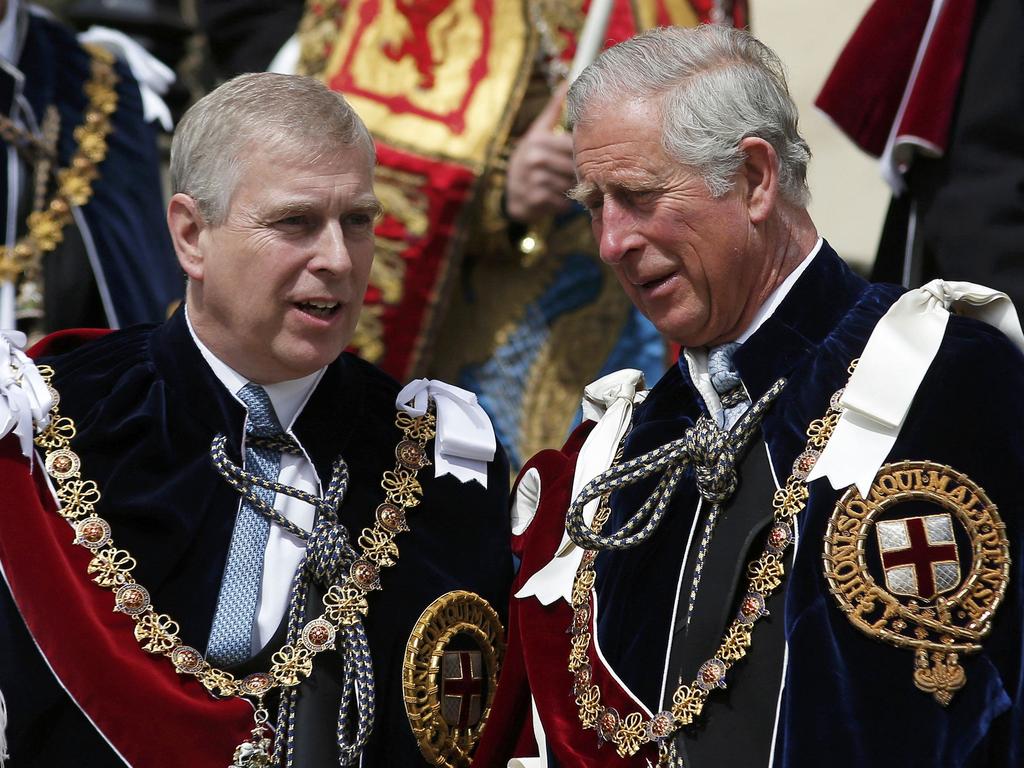


To join the conversation, please log in. Don't have an account? Register
Join the conversation, you are commenting as Logout